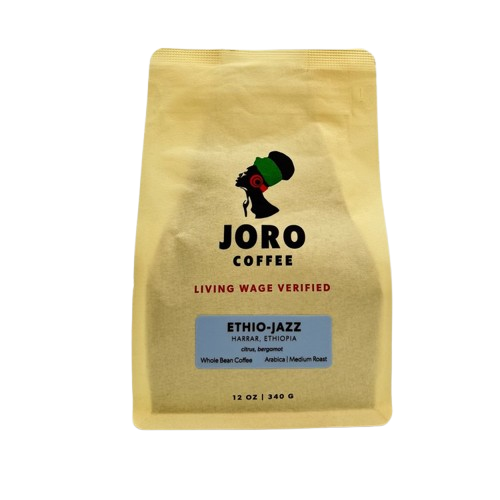Joro Coffee's Compostable Packaging: Transforming Sustainability One Cup at a Time
You have probably heard it a few times and are somewhat familiar with it by now, but you are not entirely sure what it means.
Compostable Packaging.
So what is compostable packaging? And is it a useful alternative to packaging made from conventional or recyclable materials?
As sustainability becomes a cornerstone of industries worldwide, Joro Coffee is proud to champion eco-friendly solutions, particularly through its compostable packaging.
What is Compostable Packaging?
Compostable packaging is designed to break down in an environmentally friendly manner, returning to the earth without leaving harmful residues. Unlike traditional plastic or even some recyclable materials, compostable packaging is created, used, and disposed of in a way that minimizes ecological impact.
Our packages are made from a combination of various recycled, plant-based materials. These natural materials are what makes compostable packaging so environmentally friendly.
As society becomes increasingly conscious of plastic pollution and waste, compostable packaging is emerging as a vital alternative and forward-thinking brands like Joro Coffee are leading the charge.
Compostable vs. Other Eco-Friendly Materials
To understand compostable packaging, it’s essential to differentiate it from other terms often associated with eco-friendly packaging:
Bio-Based Plastics
Derived from renewable resources such as corn, starch, or cellulose.
May contain a mix of natural and synthetic components.
Not all bio-based plastics are biodegradable. For instance, bio-PET, made from Brazilian sugarcane, cannot decompose naturally.
Biodegradable Plastics
Break down into water and carbon dioxide through biological processes.
The timeline and conditions for biodegradation are often undefined.
Biodegradable plastics may still rely on synthetic components.
Compostable Packaging
A specific type of biodegradable material that decomposes within a defined timeframe under controlled conditions.
Often made from polylactic acid (PLA) derived from plants.
Requires proper disposal methods to fully realize its eco-friendly potential.
How Does Joro Coffee’s Compostable Packaging Work?
Joro Coffee’s commitment to compostable packaging reflects a dedication to sustainability and innovation. Compostable packaging requires a specific environment to decompose efficiently. These conditions include:
Warm temperatures
Adequate moisture
Oxygen availability
Nutrient-rich surroundings
Joro Coffee’s compostable bags are heat-sealed, FDA-approved, and printed with soy-sauce-based FDA-approved ink. This ensures that the packaging is safe for food storage and environmentally friendly.
Soy-based ink reduces the use of petroleum-based inks, which are harmful to the environment, while the heat-sealed design guarantees freshness without compromising eco-friendliness. These features underscore Joro Coffee’s commitment to sustainability and quality.
When placed in a compost bin, these materials typically break down within 12 weeks, transforming into dark, crumbly topsoil with an earthy aroma.
This nutrient-rich compost can then be used to enrich garden soil, benefiting plants and contributing to a healthier ecosystem.
Proper Disposal of Joro Coffee’s Compostable Packaging
To maximize the benefits of compostable packaging, it must be disposed of correctly. If thrown into general waste, it ends up in landfills, where the lack of optimal conditions prevents it from decomposing as intended.
Here’s how to dispose of Joro Coffee’s compostable packaging responsibly:
Home Composting
Place the packaging in a compost bin in your garden.
Ensure the bin provides the necessary warmth, moisture, and airflow.
Industrial Composting
Many local councils offer green waste collection services that support industrial composting.
Check your area’s guidelines for compostable waste disposal.
Community Composting
Engage with community composting initiatives to ensure proper disposal.
Advantages of our Compostable Packaging
Choosing compostable packaging offers numerous benefits:
Reduces Landfill Waste
Diverts waste from landfills, where plastics can take centuries to decompose.
Minimizes Plastic Pollution
Reduces reliance on traditional plastics, curbing environmental contamination.
Promotes Soil Health
Converts waste into nutrient-rich compost that enhances plant growth.
Supports a Circular Economy
Encourages a sustainable loop of production, usage, and disposal.
Aligns with Consumer Values
Meets the growing demand for sustainable products, strengthening brand loyalty.


